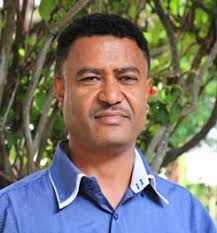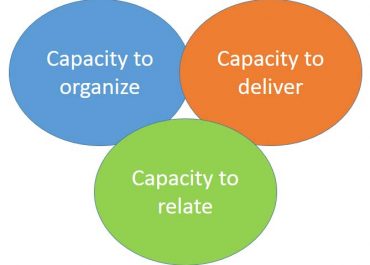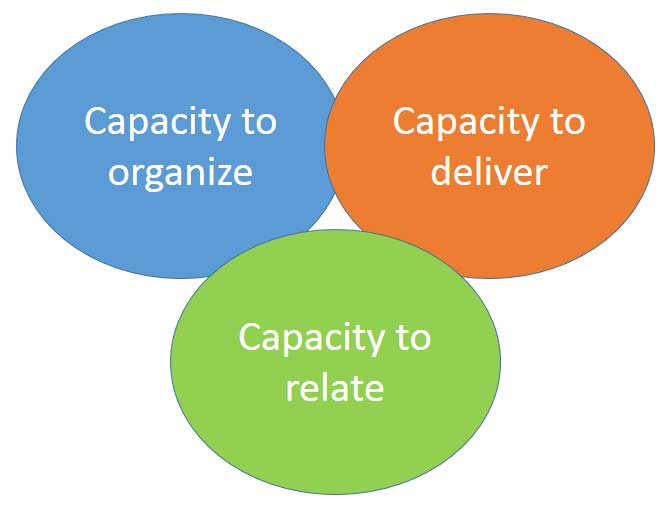 By Samson Eshetu (PhD), AFAAS Capacity and Institutional Development Specialist
By Samson Eshetu (PhD), AFAAS Capacity and Institutional Development Specialist
The EU initiative on the Development of Smart Innovation through Research in Agriculture (DeSIRA) intends to boost the transformation of innovation in agriculture and food systems in partner countries and make them more resilient to climate change and better respond to development demands. The objective of the project is to enable agricultural research and innovation, including extension services, to contribute effectively to fo od and nutrition security; economic development and climate mitigation in Africa. One of the key expected outcomes of the action is to contribute to improved capacities of AFAAS to strengthen and support agricultural knowledge and innovation partners at all levels in Africa to transform agriculture and food systems and to influence policy formulation through effective linkages to/in use of climate relevant science, knowledge and innovation. AFAAS, as one of the TAP partners, committed to promote the use of Capacity Development for Agricultural Innovation Systems (CDAIS) tools and approaches. In this regard, AFAAS has conducted a rapid organizational capacity assessment using the CDAIS tool (organizational capacity strengthening: a guide to a coaching process), with the overall purpose of identifying capacity gaps and devise capacity strengthening interventions.
od and nutrition security; economic development and climate mitigation in Africa. One of the key expected outcomes of the action is to contribute to improved capacities of AFAAS to strengthen and support agricultural knowledge and innovation partners at all levels in Africa to transform agriculture and food systems and to influence policy formulation through effective linkages to/in use of climate relevant science, knowledge and innovation. AFAAS, as one of the TAP partners, committed to promote the use of Capacity Development for Agricultural Innovation Systems (CDAIS) tools and approaches. In this regard, AFAAS has conducted a rapid organizational capacity assessment using the CDAIS tool (organizational capacity strengthening: a guide to a coaching process), with the overall purpose of identifying capacity gaps and devise capacity strengthening interventions.
The three capacity domains
According to CDAIS, 2018, for any organization to provide effective and efficient services, it should have three main capacities: i) capacity to organize, ii) capacity to deliver and iii) capacity to relate. An organization with adequate capacities in these areas can respond to the needs of, and engage with actors in an innovative process. The study used CDAIS organizational capacity analysis tool (Tool 3) to assess the current capacity status of  AFAAS. The tool has an interview guide composed of three capacity domains with sub categorization of 10 elements and, sub-sub categories of 31 criteria. In addition, the tool has also a score guide ranging from lowest score of 0 (not possible to evaluate or not applicable) to the maximum score of 4 (excellent). As a general note, any capacity domain below an average score of 2.5 indicates that there are capacity gaps which need improvement. Whereas, any capacity domain above average shows strengths of capacity which needs to be maintained. If the score is getting closer to the average composite score, that shows the need for capacity interventions.
AFAAS. The tool has an interview guide composed of three capacity domains with sub categorization of 10 elements and, sub-sub categories of 31 criteria. In addition, the tool has also a score guide ranging from lowest score of 0 (not possible to evaluate or not applicable) to the maximum score of 4 (excellent). As a general note, any capacity domain below an average score of 2.5 indicates that there are capacity gaps which need improvement. Whereas, any capacity domain above average shows strengths of capacity which needs to be maintained. If the score is getting closer to the average composite score, that shows the need for capacity interventions.
Methodology: The staff of the AFAAS Secretariat were the target population of the study. The organizational analysis tool (Tool 3) developed under the CDIAS project was used. The tool was sent to all AFAAS Secretariat staff (respondents) via email and respondents completed the interview guide (self-administered questionnaire). Data were analyzed using simple descriptive statistics (Frequency and Percentage) and presented in graphics/charts forms.
Key findings of organizational analysis and action taken
The current capacity at AFAAS in terms of capacity to organize (internal), capacity to deliver (services) and capacity to relate (external relation) were assessed for the purposes of understanding of current capacity status, gaps and recommend capacity development interventions. Generally, the study results reveal that AFAAS capacity to organize (internal), capacity to relate (external relation) and capacity to deliver are good. This does not mean there is no capacity gaps. AFAAS identified capacity areas that need intervention. As a result, AFAAS Capacity and Institutional Development and Finance and Administration units are in the process of developing AFAAS Capacity development plan with the purpose of strengthening staff capacity to discharge their roles and responsibilities. AFAAS is planning to continue applying the CDAIS tools and approaches in its network (Country Forums and Regional Forums).
If you want to read more about organizational capacity strengthening: a guide to a coaching process, follow this link https://cdais.net/wp-content/uploads/2019/08/CDAIS-M2-ORG-Organisational-Strengthening.pdf

